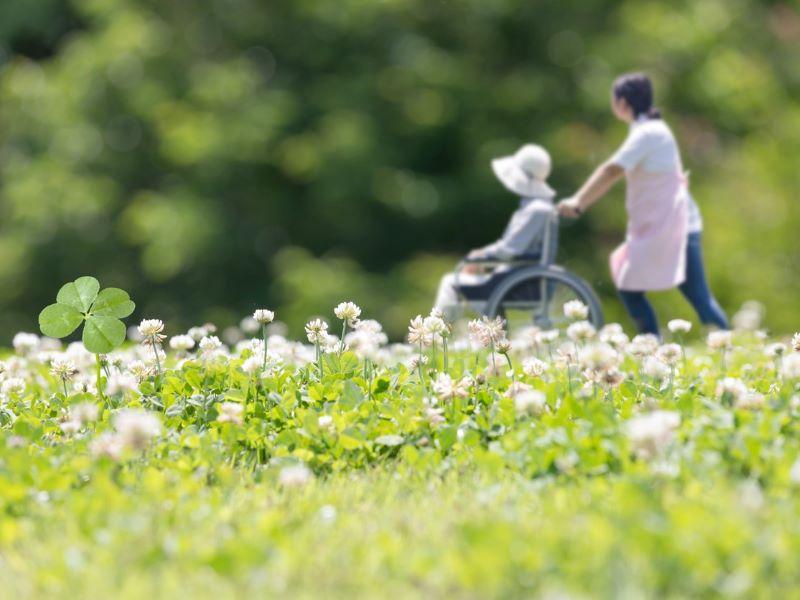
An invisible minority: what is needed to support students with caring responsibilities
Students with caring responsibilities in the UK have no joined-up support. Jessica Iyamu and Ellie Brown make a call for policies to provide consistent help across all universities for this overlooked group

Student carers are an overlooked group in higher education. UK universities have no clear and consistent approach to their support needs. This is at odds with other factors known to impact student attendance and achievement, such as dyslexia, for which specific support pathways and measures exist. So, why is there no consistent approach to support students who are carers?
Carers can face a multitude of challenges in relation to their studies, including financial difficulties, interruptions to attendance and increased risk of mental illness. These challenges can hinder efforts to achieve a degree, yet very little guidance is available to staff and students about appropriate support options for carers in higher education.
- …´∫–÷±≤• Campus spotlight collection: Champion inclusion on your campus
- How to attract and support non-traditional students in higher education
- Targeted advice and guidance is crucial for widening participation
How can universities support students who are carers?
Literature is limited in this field; however, previous reports and experience point to potential actions that could improve support for students who are carers. Here is what needs to be done:
1. Introduce government policy
If there were a government policy or pathway that all students who identified as carers could follow, it would ensure appropriate support was provided across the sector and would contribute to an inclusive education, regardless of which university the carer attended.
2. Introduce university student carer policies
The introduction of student carer policies would provide a consistent approach across each university and make sure that all student carers at the institution received the same support and opportunities. The policy could be a continuation of one set out by government and consider:
- the type of care the student provides
- the impact this has on them and their participation at university
- additional teaching and learning and well-being support that is required
- signposting to external agencies, if needed
- a personal tutor who the student can contact in relation to their studies or support needs
- the student's professional aspirations so that timely career guidance can be given.
This last point is important given the high proportion of carers who work in low-skilled and poorly paid jobs.
3. Promote widening participation for carers
There is emphasis on widening participation for mature students and those considered to have “non-standard” entry qualifications, so this could be expanded to include carers. Engaging with carer support groups in the community would endorse this. Widening participation can also be achieved through adaptable teaching and learning strategies, which include hybrid lessons, for carers unable to attend all lessons in person, and flexible deadlines.
4. Include a disclosure option during application
Once identified through widening participation, a student can then notify university admissions that they are a carer. This is a crucial step in establishing a support provision early in the application cycle. When the student registers their carer status, this could trigger internal departments, such as student support, to contact the student to assess their support needs. This would provide assurance to the student that their caring responsibilities had been acknowledged by the university and considered in relation to their studies, promoting inclusivity.
5. Provide carer-specific bursaries
Providing bursaries specifically aimed at carers may provide some reassurance that attending university is a financially viable option. Carers are not entitled to (DSA) and cannot claim carers' allowance if they are in full-time education. This is disappointing given the volume of research highlighting the financial hardship faced by carers. It creates a clear need for universities to provide support to neutralise governmental policies.
6. Create multi-department support groups
Having multi-department support groups that operate across the university, creating a network, could be instrumental in establishing an inclusive environment for carers. Such networks already exist for certain student societies, LGBTQ+ and religious groups, among others, but few operate for carers.
7. Specific teacher and internal staff training
The support needs of carers should be included in staff training to build awareness of this unique group. Teacher education programmes should equip newly qualified tutors with the knowledge and skills needed to understand the challenges faced by those with caring responsibilities. This is not covered in any detail in teacher training.
Offering internal training to all staff and sharing best practice across institutions would bolster effective support. This may also help university staff identify students with undeclared caring responsibilities that create challenges for them. They can then look for ways to prevent them slipping through the net. Many carers would not self-identify as such and, consequently, would miss out on support.
An agreed approach to support for carer students
These actions would contribute to a homogenous approach to supporting student carers within UK higher education. This has the potential to improve retention, as well as promote social mobility and inclusion, among this invisible group of students. Representative bodies such as the Office for Students (OfS) should support implementation and monitoring of such policies to ensure a joined-up approach.
More research looking at different carers’ individual needs would help to determine if support is dependent on the type of carer. For example, students who care for a close relative with cancer may have different needs from someone caring for a relative’s young children. This is an area that would greatly benefit from further research.
Jessica Iyamu is a programme leader in bioscience and biochemistry at University Campus North Lincolnshire (UCNL). She is completing a PhD researching the impact of cancer treatment on education, quality of life and cognitive development. Ellie Brown is a student intern, also at UCNL.
This guidance is based upon Jessica’s research and past papers, including
If you would like advice and insight from academics and university staff delivered direct to your inbox each week, .
Additional Links
– advice from the Carers Trust.


